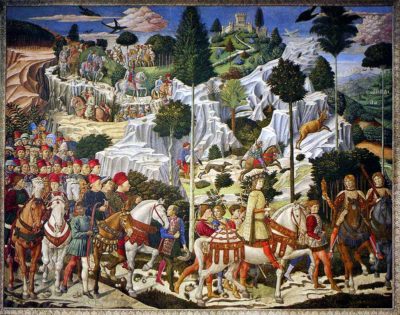Renaissance Now! A New England Renaissance Conference Discussion
A series of panels sponsored by the NERC at the Renaissance Society of America Annual Meeting
Boston, March 31-April 2, 2016
General description:
From various methodologies, to different narratives, and distinct subject matters, this five-panel series addresses new ways to know, understand, interpret, and present the Renaissance. Each panel addresses themes that, independently and jointly, build a framework for Renaissance studies. Please contact NERC co-presidents Gen Liang (ygliang@wheatonma.edu) and Touba Ghadessi (ghadessi_touba@wheatonma.edu) for more information.
Submissions should:
- Indicate preferred panel (if your presentation fits in more than one panel, please indicate order of preference)
- Include a paper abstract (150 words maximum)
- Include keywords
- Include a curriculum vitae (300 words maximum)
- Please send to Gen Liang (ygliang@wheatonma.edu) and Touba Ghadessi (ghadessi_touba@wheatonma.edu)
- **Deadline: May 15, 2015**
Panel 1: “Assessing the ‘Cultural Turn’: Where Do We Go From Here?”
Though the study of the Renaissance has long focused on the subject of culture, new methods in cultural studies have revolutionized the field in recent decades. The result has been new understandings of human lives, society, politics, beliefs, etc. This panel assesses the methods developed in the “cultural turn” and at the same time explores new methods that will continue to advance and innovate the field.
Panel 2: “Renaissance and the Public”
Renaissance studies, like other academic fields, faces the challenges of reaching audiences and asserting its relevance in the twenty-first century. Yet, from a bestselling novel on hidden codes in da Vinci’s works to a hit television series on the Tudors, to award winning movies on Shakespeare and the Virgin Queen, and to blockbuster exhibitions on Spanish Golden age painting, the Renaissance remains strong and vibrant in the collective imaginary. In light of these trends in popular culture, as well as recent moves by some scholars to engage in the public humanities, this panel highlights work presenting the Renaissance to a broader audience. We encourage papers on new methods to reach students and broader publics, new ideas of conceptualizing scholarship and the public, and new institutional developments.
Panel 3: Artifacts Pageant – “Renaissance and New Epistemologies”
Scholars are constantly experimenting with new sources and methods to expand and refine knowledge of the Renaissance. At the same time, contemporary developments such as new technologies are reshaping what we know and how we interpret the past. In this session, panelists present a single artifact – perhaps one that poses a puzzle – that exemplifies new methods and encourages discussion, exploration, and engagement with the audience. Examples of artifacts include a short portion of a text, object, image, musical piece, film clip, etc. Presenters will open by sharing the artifacts and the audience will weigh in with questions and proposed “readings”/interpretations of the artifacts.
Panel 4: Graduate student panel – “Global Renaissance”
In recent years, Renaissance studies has moved to include areas of the world beyond the European core. New scholarship both examines Europe’s interactions with the world and the world’s development independent of European influence. Cross-cultural exchanges, engagement with different historical paradigms, and dialogues highlighting porous boundaries will be at the center of the examinations presented under the “global” umbrella. This panel showcases work by scholars on the leading edge of globalizing the study of the Renaissance.
Panel 5: Roundtable conversation – NERC Stakeholders’ discussion
The New England Renaissance Conference at the RSA culminates in a discussion that explores the organization’s past, present, and future. To celebrate the NERC’s 75th diamond jubilee anniversary, please join us to learn about our heritage and share and brainstorm ideas for the future.
- History of NERC
- Archives project
- Relevance of NERC and regional associations today
- Outreach and web presence
